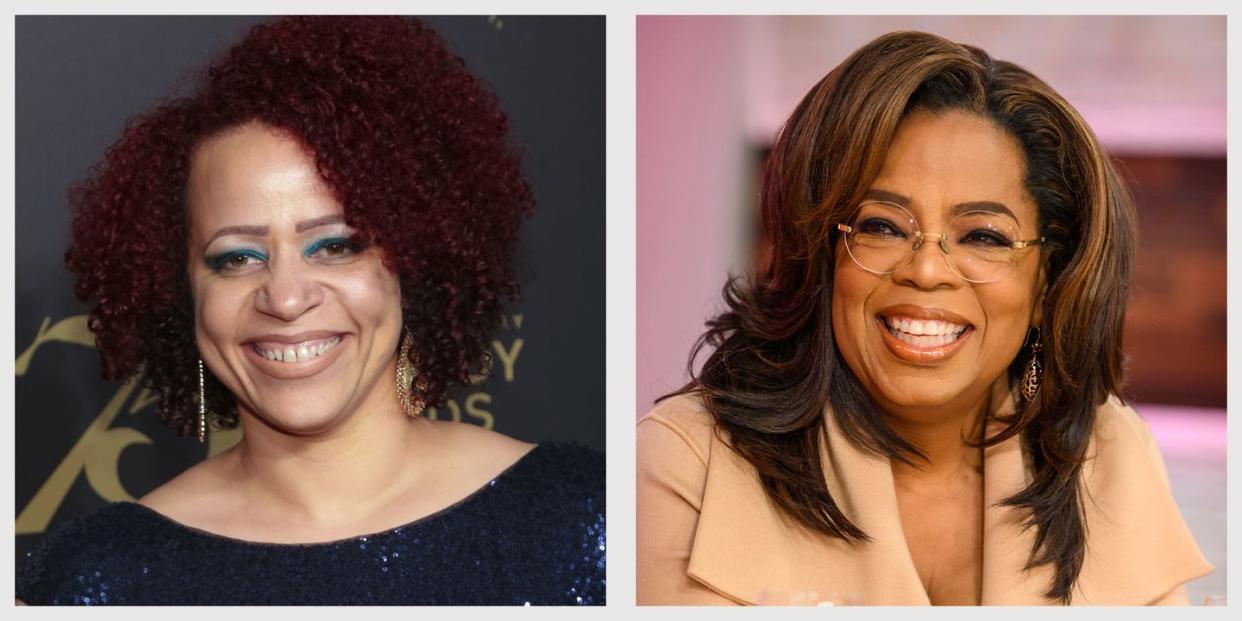"The 1619 Project" to Be Adapted for Film, TV, and More with Oprah Winfrey's Help

Last year, the New York Times Magazine debuted an issue dedicated to investigating the origins and enduring legacy of slavery in the U.S., as well as an accompanying podcast. It was named "The 1619 Project" for the year when the first enslaved Africans arrived in Virginia, a date it positioned as America's true genesis.
The ambitious project, lead by staffer Nikole Hannah-Jones, was widely praised, and even saw Hannah-Jones win a Pulitzer Prize for her efforts. And now, even more people will learn from "The 1619 Project," with newly-announced plans for a group of potential adaptations for movies, television, and more—all spearheaded by Hannah-Jones and Oprah Winfrey.
Here's what we know about the adaptation(s).
This won't be just one film or TV show.
As first reported by the Root, the project will be adapted into "an expansive portfolio of feature films, television series and other content for a global audience."
Hannah-Jones will be "the creative leader and producer."
The force behind the original project will continue to oversee its adaptations. "I am excited for this opportunity to extend the breadth and reach of 'The 1619 Project' and to introduce these stories of Black resistance and resilience to even more American households," she told the Root.
Winfrey "will provide stewardship and guidance."
Alongside partners Hannah-Jones, the New York Times, and Lionsgate, Hollywood mogul Oprah Winfrey will oversee the development and production of the project's various adaptations.
"From the first moment I read 'The 1619 Project' and immersed myself in Nikole Hannah-Jones’s transformative work, I was moved, deepened and strengthened by her empowering historical analysis," Winfrey said. "I am honored to be a part of Nikole’s vision to bring this project to a global audience."
For her part, Hannah-Jones praised Winfrey as "a trailblazer and beacon to so many Black journalists."
You Might Also Like

